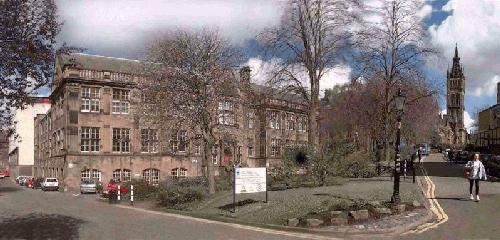|
|
|||||||
 |
Advanced Data Analysis for the Physical Sciences |
 |
|||||
| University of Glasgow January 5th - 6th 2011 |
|||||||
|
|
|||||||
| Overview This
2-day course, organised by the SUPA
Graduate School, and hosted by the School of Physics and
Astronomy at the University of
Glasgow,
will provide a comprehensive introduction to the principles and
practice of advanced data analysis, with particular focus on their
application
within the physical sciences.
During the course, a range of topics will be explored, via a series of lectures and discussions. SUPA ADA Intended Learning Outcomes: download
|
|||||||
| Short
cut to downloads |
|||||||
| Short
cut to weblinks |
|||||||
| The
data analysis course is open to all
Scottish postgraduate students in physics and astronomy, but is aimed
in particular at first year postgraduates. If you are interested
in attending, but are unsure if
the course will be appropriate, you should discuss it first with your
supervisor or local
SUPA Graduate School representative. There is no registration fee for the data analysis course. For SUPA students who are not from Glasgow University, your travel and / or subsistence costs for attendance will be met by the SUPA Graduate School. Contact your local Graduate School representative to check that you are eligible for funding support. |
|||||||
|
|
|||||||
|
|
|||||||
| Practical
Information The
data analysis course will be held in Room 222 of the School of Physics and
Astronomy, in the Kelvin
Building at the University of Glasgow.
Follow the signs to Room 222 from the main entrance to the Kelvin
Building.
On Wednesday 5th January 2011, the course lectures will begin in Room 222 at 10am. During the breaks, tea, coffee and soft drinks will be available in Room 470, the Kelvin Building Common Room. Follow the signs to the Common Room from outside Room 222 (or ask one of the local students!). |
 Kelvin
Building, University of Glasgow.
Home to the School of Physics and Astronomy |
||||||
|
|
|||||||
| Provisional
Schedule and Syllabus (including downloads) |
|||||||
| Wed
5th Jan |
Room
222, Kelvin Building |
||||||
| 10.00
- 11.15 |
Introduction
and Theoretical Foundations |
Preamble:
pdf file
mp3 file |
|||||
|
Section
1: pdf file
mp3 file |
||||||
| 11.45
- 13.00 |
Parameter
Estimation: Advanced Line and Curve Fitting |
Section 2: pdf
file mp3 file |
|||||
|
|||||||
| 13.00 -
14.15 |
Lunch |
||||||
| 14.15
- 17.00 |
Hypothesis
Testing and Goodness-of-Fit |
Section
3: pdf file
mp3 file |
|||||
|
|||||||
| from
17.30 |
Informal
gathering in pub |
||||||
|
19.00 for 19.30 |
Dinner
(curry at Mother India) |
||||||
| Thu 6th Jan |
Room
222, Kelvin Building |
||||||
| 09.30 -
12.45 |
An Advanced Toolbox for Bayesian
Inference |
Section
4: pdf file
mp3 file |
|||||
|
Section
5: pdf file
mp3 file |
||||||
| 12.45 -
14.00 |
Lunch | ||||||
| 14.00 - 15.30 |
Advanced Numerical Methods |
Section
6: pdf file
mp3 file |
|||||
|
|||||||
|
|
SUPAADA problem
sheet: download |
||||||
|
|
|||||||
| Course
Materials Copies of the lecture notes and other material will be be available online. Podcasts of the lectures will also be available after the course. Much of the course syllabus is well covered in Data Analysis: A Bayesian Tutorial, by D.S. Sivia and J. Skilling, and in Bayesian Logical Data Analysis for the Physical Sciences, by Phil Gregory. Some of the more advanced material is covered in Information Theory, Inference and Learning Algorithms, by D. Mackay. This book is also available online. |
|
||||||
|
|
|||||||
| Links
to external
websites and other resources |
|||||||
| Face
recognition software (just for fun!) |
|||||||
| Supplementary
notes on hypothesis testing |
|||||||
| Introductory
statistics lecture notes |
|||||||
| The
Prosecutor's fallacy: examples of misunderstanding
probability |
|||||||
| Online matrix
calculator |
|||||||
| Numerical Recipes books
online |
|||||||
| Links
to webpages that perform statistical calculations online |
|||||||
| Accommodation For SUPA students from outside Glasgow, the organisers can arrange accommodation in a nearby hotel for the night of Wednesday 5th January. All registered participants will receive an email checking their accommodation requirements. |
|||||||
|
|
|||||||
|
Martin Hendry (principal organiser
and course
lecturer)
School of Physics and Astronomy University of Glasgow |
|||||||

